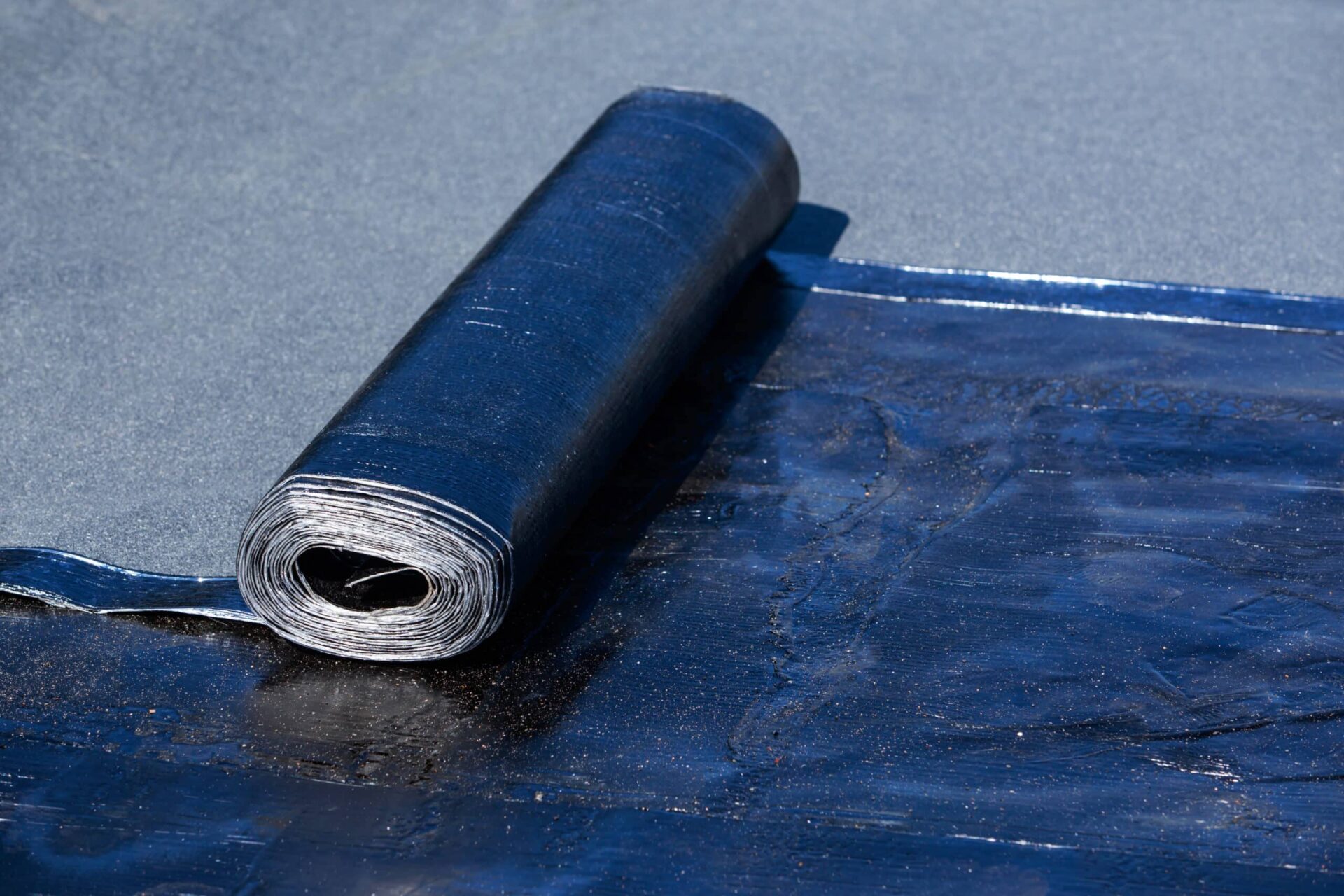A bituminous waterproofing membrane is a type of flexible material made primarily from bitumen (a viscous, tar-like substance derived from petroleum), reinforced with materials such as polyester, fiberglass, or other polymers. It is used to provide a waterproof layer for various types of structures, ensuring protection against water infiltration and environmental damage. These membranes are typically applied to flat or sloping surfaces in construction, creating a durable and effective barrier against moisture.
Composition and Types
Bituminous membranes come in two primary forms:
- Self-Adhesive Membranes: These are pre-applied with an adhesive layer that allows them to stick directly to the substrate without the need for a torch or other heating methods. They are especially useful in situations where using open flame would be hazardous.
- Torch-Applied Membranes: These require a torch to melt the bitumen on the underside of the membrane during application, allowing it to bond securely to the surface.
Both types of bituminous membranes can be composed of either SBS (Styrene-Butadiene-Styrene) or APP (Atactic Polypropylene) modified bitumen. SBS membranes provide better flexibility at low temperatures, while APP membranes are more resistant to UV radiation and higher temperatures.
Applications of Bituminous Waterproofing Membranes
- Roofing Systems: Bituminous waterproofing membranes are commonly used for flat or low-pitched roofs, where water drainage is not optimal. These membranes provide a seamless barrier, preventing leaks and damage caused by water accumulation. Their durability, ease of application, and resistance to environmental factors make them an ideal choice for roofing in both residential and commercial buildings.
- Basements and Underground Structures: In basement construction and other underground structures, bituminous membranes are crucial for waterproofing the foundation walls. They help prevent water ingress from the surrounding soil, ensuring the integrity of the building’s structure and protecting against potential water damage, mold, and corrosion.
- Bridge Decks: Bituminous membranes are also applied to bridge decks to protect against the effects of water infiltration, which can lead to deterioration of the concrete and steel components. These membranes help to prolong the lifespan of bridges by acting as a barrier against moisture and salts.
- Parking Lots and Driveways: In areas that are frequently exposed to vehicular traffic, such as parking lots and driveways, bituminous membranes are used as a waterproofing solution to protect the underlying structures from water penetration, which could lead to the weakening of the concrete or asphalt layers.
- Water Reservoirs and Dams: Large-scale water storage facilities such as reservoirs, ponds, and dams often require waterproofing solutions to prevent water from seeping into the surrounding environment. Bituminous membranes are applied to the base and sides of these structures to create an effective waterproof barrier, helping to preserve the integrity of the water-retaining surface.
- Terraces and Balconies: In multi-story buildings, waterproofing membranes are also applied to terraces and balconies. These areas are especially prone to water damage due to exposure to the elements. Bituminous membranes can protect these surfaces from water infiltration, preventing structural damage and reducing maintenance costs.
Advantages of Bituminous Waterproofing Membranes
- Durability: Bituminous membranes are highly resistant to wear and tear, making them suitable for long-term use in harsh environments.
- Waterproofing Efficiency: These membranes offer exceptional protection against water penetration, ensuring the structural integrity of buildings and other infrastructures.
- UV Resistance: Depending on the type of modification (SBS or APP), bituminous membranes can resist UV radiation, extending their service life.
- Flexibility: They remain flexible even in low temperatures, ensuring they maintain their integrity in cold weather conditions.
- Ease of Application: Bituminous membranes are relatively easy to apply, either by torching or through self-adhesive methods, depending on the product.
Bituminous waterproofing membranes are a reliable and effective solution for preventing water ingress in a wide range of construction applications. From roofing and foundations to parking lots and water reservoirs, these membranes offer long-lasting protection against water damage. Their durability, flexibility, and ease of application make them an essential material for modern construction, ensuring the longevity and stability of various infrastructure projects.

